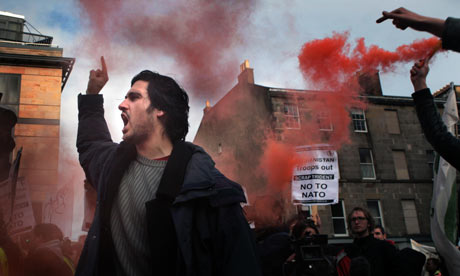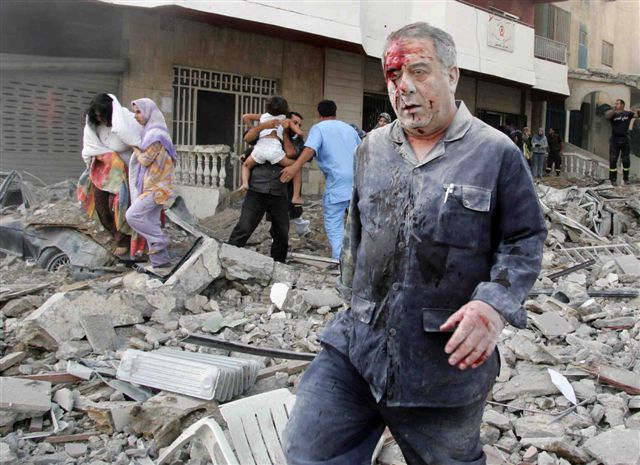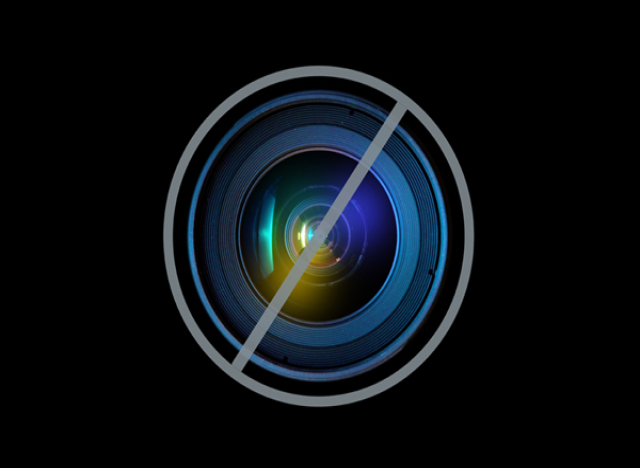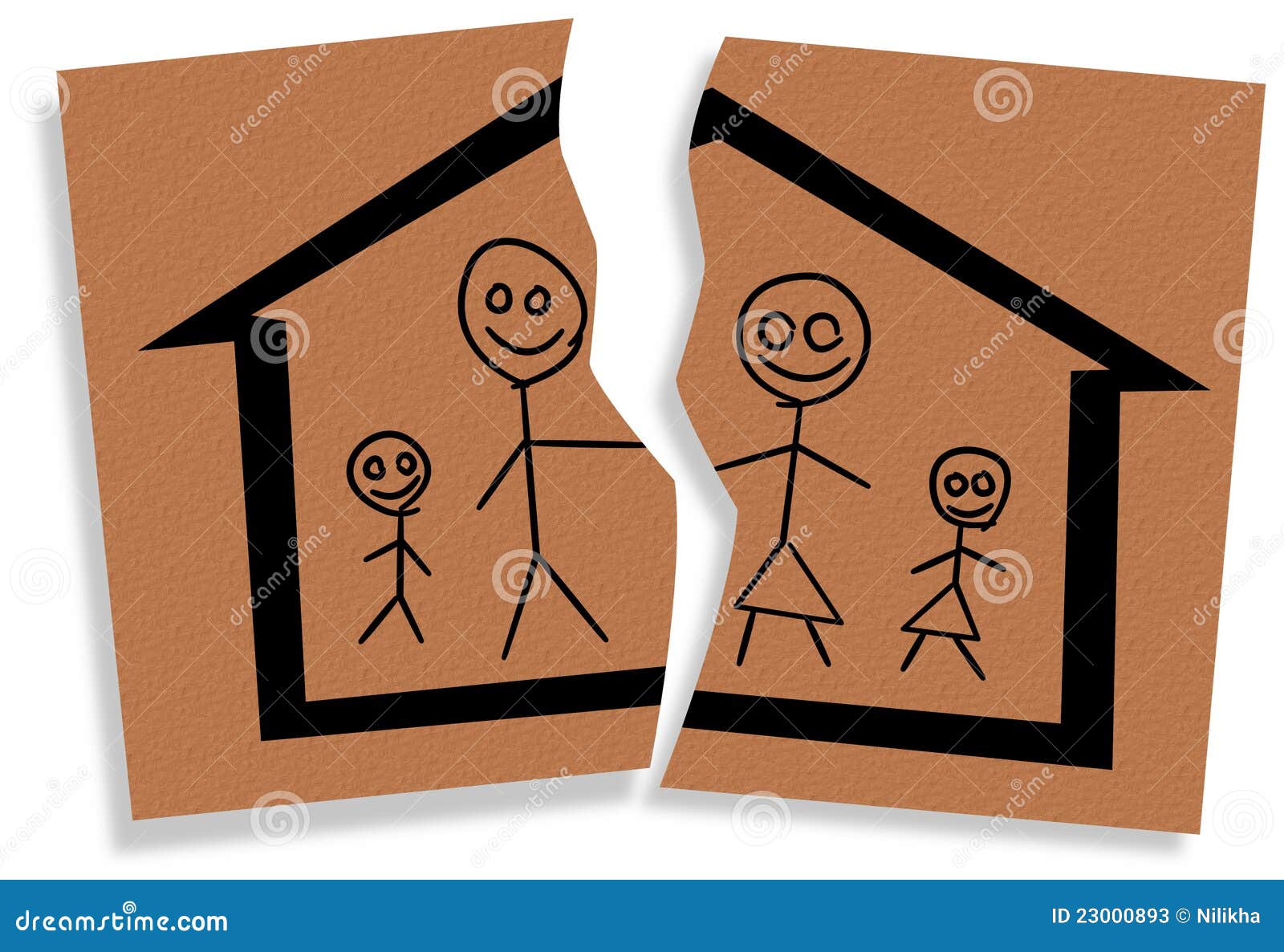Just today I presented a paper at the conference for Theology, Disability and the People of God. I shared my story of my experience with mental illness and used that as a framework for working with people with mental illness. I have shared my paper below. Feel free to share this and pass on to educate others in this area. Blessings
-------------------------------------------------------------------------------------------------------------------------------

Today I am here to talk to you about the
impact of mental illness and the importance of the church community in the
healing and restoration of people who suffer from these illnesses.
10 years ago I was diagnosed with early
onset schizophrenia, an illness that usually besets someone in their 30's that
I started experiencing at age 12. The diagnosis was given when I was 19, just
after I had got married, and by then it had been seven years of mental health
issues with little help or understanding. For all my teenage years I had
struggled with extreme depression, self harming, eating disorders, and audible
and visual hallucinations. In some ways it was a relief to finally be told what
was wrong with me, and in others it felt like a death sentence. I had been
labelled as incurable. For 5 years after my diagnosis I was placed on
medication after medication, I was kept in psych wards for varying stretches of
time, my every action was viewed through the symptoms of my illness. I was told
the damage in my brain was irreversible, would get worse as I aged and I would
be a permanent mental health patient. There was no hope for me, my family or my
new marriage.
While in the wards I was exposed to people
and behaviours that, in my early twenties, I was completely unprepared for. I
watched a heavily pregnant woman attack staff and have a fire hose turned on
her in an effort to control her. I heard the same lady describe her unborn
child as a demon. In reality it was her fathers. I listened to a woman for
hours tell me how the skin on her face was falling off. I met a 17 year old boy
who was dropped off by his parents for suicidal behaviour. He remained there
for a week with no visitors. I was verbally abused by a man who thought I was
his mother, and I was confronted by nurses who were in equal measure
compassionate and careworn. When not in the psych ward I was a daily visitor at
the day ward with other mental health patients in the community. Though this
was a much more pleasant environment I was surrounded by people I did not know,
that were usually much older than me, and by community workers who were
understaffed and overworked.
Eventually my illness took its toll on my
loved ones and my marriage fell apart 3 years after it had started. My mother
had to quit her job to become my full time carer. She had to wake me up, make
me shower, take me for walks, and made all my food so I ate well. We were all
told that this would be a life long sentence. There was no hope for recovery.
Despite my mothers care, my mental health continued to deteriorate and I lived
only for my chance to die. My family described me at that time as a zombie with
no purpose or care for my life.
It is with this experience that I speak to
you today.
 I find that when I speak of my experiences
with mental illness I am met with 1 of four reactions by the listeners.
I find that when I speak of my experiences
with mental illness I am met with 1 of four reactions by the listeners.
The first is ambivalence. These listeners
cannot relate, or don't know how to, and so are quick to change the subject and
to move out of the area of a topic of which they have no understanding. They
may think that mental illness is “all in your head” and something that can be
changed by will power, or they may simply have no interest in the matter.
The second reaction is nervousness and confusion.
These listeners mean well but simply do not comprehend what mental illness is
or how to respond to it. They may look at you like you are about to pull out a
gun and start a rampage, or they may ask to pray for you to release you from
the demonic stronghold over your life. These are the listeners that will offer
to pray for you but end up lost for words as they become confused as to what to
pray for. They often super-spiritualize your experience in order to bring the
conversation into a language that they understand.
The third group is perhaps the most
interesting of reactions. They are the group that leans forward with eyes
shining lapping up every word. When you have finished speaking they will say
things like “that is so cool” and ask questions like “so, you could actually
see people that weren't there? Was that freaky and what did they look like?”
They are curiously excited by what is being said and can ask insensitive
questions about experiences in the psych wards. They will also be the ones most
likely to call people with mental illness 'crazy' or 'psycho'. They also tend
to be under the age of 30.
The fourth group is the minority. They are
the listeners who will find you alone later, share their own experiences, cry
and pray with you. They usually have had an experience with mental illness and
have genuine compassion for what you have been through. But these listeners are
few and far between.
Unfortunately mental illnesses have stigmas
attached to them that cause reactions of fear, disinterest, and wariness.
People buy into the stigma that schizophrenics, and other mental health
patients, are WORTHLESS, DIRTY, INSINCERE, DELICATE,
SLOW, TENSE, WEAK, FOOLISH, INCOMPETENT, NOT RESPONSIBLE FOR ACTIONS, DANGEROUSLY VIOLENT and UNPREDICTABLE. It is my experience that these stigmas are found just as much
within the church as from without, but with the added labels of LACK OF FAITH,
DEMON POSSESSED, and ANGRY. With these labels it is easy to understand why
mental health patients find it hard to contribute in a world where the stigma
of your illness is often worse than the illness itself. It is also easy to
understand why mental health patients often talk of feeling isolated and
rejected by their communities and churches.
The simple fact of the matter is, people do
not know how to respond to mental illness.
Mental illness are two words that create a
lot of confusion as they encompass a plethora of issues from emotional
depression through to full blown psychosis that requires institutionalization. There
are also very few mental illnesses that are truly understood, even by the
medical profession, and this leads to misunderstanding, fear and isolation
within families and communities.
 Diagnosis of a mental illness creates
greater issues for the patient than suffering the illness alone. Diagnosis
locates the illness entirely with the individual, apart from their family and
environment. It claims that there is something 'wrong' with the person that
defines them as outside the acceptable 'norm'. This reduces hope of recovery,
creates stigma from labelling, and turns a person into a category.
Diagnosis of a mental illness creates
greater issues for the patient than suffering the illness alone. Diagnosis
locates the illness entirely with the individual, apart from their family and
environment. It claims that there is something 'wrong' with the person that
defines them as outside the acceptable 'norm'. This reduces hope of recovery,
creates stigma from labelling, and turns a person into a category.
Currently in NZ today it is estimated that
1 in 4 people will suffer from a mental illness at some point in their lives.
It is estimated that 38% of europeans, 62% of Maori, 59% of asians, and 59% of
pacific islanders will be diagnosed with a psychotic disorder, such as
schizophrenia, in their life time.[1]
Despite a quarter of the population having
experienced one mental illness or another at some point in their lives, it
seems to be a human issue that we cannot comprehend or relate to, a suffering
that cannot be physically manifested. People will react out of fear and
amusement, but very rarely out of genuine compassion.
And this is true of the church as well.
I was healed 6 years ago. Some ladies from
the prayer group at church answered my mothers cry for help and started a chain
of events that means I am able to stand before you today and speak for those
that often have no voice. In the last six years I have had to relearn social
cues and behaviours, get use to being on my own with no other voices to keep me
company, try to reclaim what of my memories are true events and what were
hallucinations, and to survive on my own outside of my family's care.
I carry with me the memories of people who
have not been as fortunate as I. The haunted eyes of the lady that believed the
baby in her womb was a demon. The dead eyes of the man that received shock
therapy at age 8 and has been institutionalized ever since. The fear in the
eyes of the lady who believed the skin on her face was melting off. The sadness
in the eyes of the young teenager with suicidal tendencies. I remember the
sadness, fear, anger and finally hate in the eyes of my ex-husband who received
no support and who lost all hope.
I hold in my heart the conversations I had
with the other patients about being forgotten, rejected, hated by our
communities. I remember the questions I received when I told the other patients
I was a Christian as to why no one in my church came to visit me in the ward. I
remember the loneliness each one of us had wrapped around us like a blanket.
Jesus is a friend to the broken.
I believe this with all of my heart. Yet is
it so difficult to befriend a person who doesn't speak sense, who may not even
notice your existence while you sit with them, who can act in a way that seems
barely human sometimes.
Yet Jesus is a friend to these broken.
Often these people who hear and see things
very differently from us don’t suffer beause of their own psychosis. They
suffer at the hands of people who tell them that they are abnormal, strange,
ill, and crazy. They suffer from the side affects of medication and from the
isolation and loniless. They suffer from feelings of guilt as they are told how
much of a burden they are. They suffer because of us.
I knew this couple who had met in the psych
ward, fallen in love and, against the wishes of their families, got married.
Everyone expected them to spiral out of control mentally and end up back in the
state's care. To everyone's surprise, they found a house, moved in, and, when I
met them, had been happily married for 10 years. Their love and care for each
other meant that they reminded each other to take medication and see the
doctor. But the most profound thing that she said to me was “he makes me feel
human, he doesn't care about my labels.” They had discovered in each other a
person who saw and loved the intrinsic value that the other contained in simply
being human. It was through this love and acceptance that they were able to
move back into the wider community and form relationships there. Their mental
illnesses didn't disappear or even get much better, but in being treated as human
rather than as an illness they have been able to find wholeness and
healing.
It was in their example that I saw a vision
of what the church could be. Loving the broken is more than praying for their
healing. It is more than listening to their stories. It is more than asking
questions about experiences.
It is
teaching the church as a whole to view people as human rather than as broken.
To value the humanness of a person is to see past the brokenness, the medical
labels, the sad stories, the stange behaviour, and to see the heart of a person
who longs only to be treated as worthy of attention. It is to act out the
continuing mission of Jesus to all who are difficult to relate to and to
understand and to reincorporate them back into the community.
In my experience I have seen this love of
my humanness a handful of times. I saw it in my next door neighbour who would
come over for coffee everyday and sit and listen to me ramble, help me clean my
house, tell me off if I did something silly, and give me advise on my
struggles. I saw it in a fellow student who discovered that I had difficulty in
picking up social cues and developed a system of signals to tell me when I was
doing something wrong. I saw it in one of my lecturers who let me breakdown in
his office when things were getting on top of me. I saw it in my new parents in
law who accepted my history and embraced me for it.
These people listened, heard the issue,
accepted it and worked with it, rather than trying to change it. For me, they
are the church being lived out.
I still don't know how this love for the
humanness of people works in churches. There is no 5 step program about
reintegrating the mentally ill back into the congregation. But in a country
where at least 1 million people will be diagnosed with a mental illness at some
point in their lives, there needs to be a beginning of a conversation. And it
is a conversation that includes those that it is about. They may be unwell, but
they will be very aware of what they feel is missing, what they don't like and
how they want to be treated. We need to start asking ourselves and our
congregations some deep searching questions and listening to the answers from
those who live with these illnesses.
 I would love to say that I now run a
ministry within psych wards. To be honest, I have found the very idea odf
stepping back into that environment so terrifying that I have not been able to
face it yet. It has been 6 years but the scars on my heart are still healing.
Yet I do what I can to show that people with mental illness are worth time and
effort. One evening I sat with a nextdoor neighbours mother when she turned up
at their house while they were out. I found her yelling at the fence after not
taking her medication for three days.
I would love to say that I now run a
ministry within psych wards. To be honest, I have found the very idea odf
stepping back into that environment so terrifying that I have not been able to
face it yet. It has been 6 years but the scars on my heart are still healing.
Yet I do what I can to show that people with mental illness are worth time and
effort. One evening I sat with a nextdoor neighbours mother when she turned up
at their house while they were out. I found her yelling at the fence after not
taking her medication for three days.
I sat with her all night as she told me
about the things that only she could see. In that seemingly meaningless
rambling I heard her fear of being alone, her joy of being able to talk to
others and share what she was seeing. I saw her love for me as she told me I
was smarter than Einstein and had the faith and feet of aborigines in the
desert. I heard her concern as she asked me about my imagined Maori husband
Steve and why he was angry at me. She talked about things that weren’t
physically true, but in it she cared, she loved. And I loved her by listening.
I don’t know if my actions made an impact
on her or if she even realised who I was or if I really existed, but to this
day I am in contact with her daughter and the daughter’s partner and have been
able to introduce them to a Christianity that loves even their broken mother.
I would love to stand here before you and
say I am totally free of all impairment. I am not. I still suffer from chronic
anxiety issues, depressive episodes, and intense migraines. I have had to take
time out of my study to deal with these issues and I thank God for my husband
Luke who is as steady as a rock and reminds me to breathe slowly. He is my reminder of God's redemption and resurrection power in my life/
Our congregations should have these people
in them. The fact that often they don’t reflects on the fact that we have not
questioned the way we practice church. Questions like:
What would it look like to have mental
health patients not just tolerated in our worship meetings, but celebrated and
embraced?
What does it mean to learn from the broken,
rather than to teach them?
What would it look like to seek friendship
with the friendless, not for their health sake but because they are human and
have something to offer?
What would it look like, as Swinton talked
about on Monday, to stop having to act as the host or hostess and instead receive
hospitality from people with mental health issues?
What does it mean to act towards the least
of these as we would Jesus?
What would it look like to treat them like
we would our Saviour?
Wheeler, A. NZ Medical Journal 2005
 1. I am in my 30's but my husband is still under 25. Now we have different numbers at the start of our ages it seems like such a bigger age gap than before. I feel like telling people our ages now will get even more of a reaction than it has before.
1. I am in my 30's but my husband is still under 25. Now we have different numbers at the start of our ages it seems like such a bigger age gap than before. I feel like telling people our ages now will get even more of a reaction than it has before. Though these sentiments are probably helpful for many people, I find them somewhat difficult. Jesus is the Way, the Truth and the Life but not even he said that he is the only thing we ever need. He said we cannot live on bread alone, but need the Word of God, and that he is the Water of Life and those who drink from him will never be thirsty, but did he mean that he was all we need for every situation?
Though these sentiments are probably helpful for many people, I find them somewhat difficult. Jesus is the Way, the Truth and the Life but not even he said that he is the only thing we ever need. He said we cannot live on bread alone, but need the Word of God, and that he is the Water of Life and those who drink from him will never be thirsty, but did he mean that he was all we need for every situation?



















